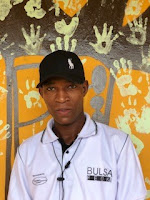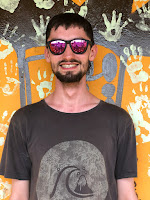As Muslims,
the most asked question is, what is Ramadan? In Islam, Muslims have their own
calendar and Ramadan fall on the ninth month. The Islamic calendar is a lunar
calendar based on the cycles of the month. This is the period where Muslims
fast for 29 to 30 days, from dawn to sunset. Hence why Ramadan is never a fixed
month in the western calendar. Ramadan is the month that the Qur’an (holy book)
was revealed to the last prophet, Muhammad (pbuh).
Another
popular question or statement is, God is rather wicked for allowing you to
starve for so long. When you do not have a particular faith of your own, it is
easy to misconstrue other people’s faith. As human beings, it is hard to
understand or be empathetic to something you have not encountered. Islam is
built on five pillars, which are; charity, prayer, fasting, pilgrimage (visiting
Hajj) and the shahadah (believing in the oneness of Allah (GOD) and his
prophets). Islam itself means peace, and the teachings and examples sent by
Allah emphasise on humility, forgiveness, humbleness, obedience, honesty,
sympathy and so fourth. Fasting is not only good for your health as it is a
form of detoxification, but it is also a humbling experience. It helps to deter
one from disobedience and also increases empathy for those less fortunate. It
also increases spirituality which strengthens your connection with God and
helps one to remember the blessings which we usually take for granted.
Fasting in
Ghana, has so far been a good experience. There is a mosque in every community,
which makes praying easy. Religion is a big thing in Ghana. Therefore,
practicing a religion in Ghana is very easy, Christians and Muslims work hand
in hand. Therefore, even though I and my counterpart are away from home, we still
feel the peace that comes with Ramadan. Although the heat can make one more
fatigue during the day, especially when working in the office or doing chores
like washing clothes has become tedious. Even socialising has become a burden.
Due to the hot sun, being out all day without water makes one feel dehydrated.
Not being
able to participate in social events does sometimes make us feel sad because we
do not want our other team members feel like we are not being active team
members. Even though are team members are understanding to the fact that we are
fasting, it still does make us feel like we are missing out on the social
aspect.
The sun sets
much earlier in Ghana, therefore, we break our fast around 6:30pm. This gives
us enough time to cook and socialise with our host families, before going to
the mosque for night prayers.



















